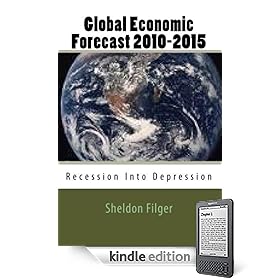Global Economic Crisis Worsens As Covid-19 Pandemic Unleashes Massive Debt Crisis – U.S. Budget Deficit Will Likely Exceed 20 Percent of GDP
As the coronavirus ravages our planet, decimating economies large and small in its wake, it distinguishes itself from the 2007-09 global financial crisis in this way: it is an economic disaster brought on by a health crisis, as opposed to the GFC, where economies were harmed by a major financial crisis. However, this distinction will soon vanish, for the following reasons.
The enforced shutdown of the global economy created by the health response to the Covid-19 panic has led to massive spikes in unemployment, at a faster pace than even during the Great Depression of the 1930s, while businesses large and small are shuttered, severely constricting activity, while households are on the verge of insolvency. To prevent complete economic and societal collapse, sovereigns have launched emergency stimulus measures, at unprecedented levels of deficit spending, typically in the range of 10 to 15 % of GDP, as in the United States with Congress recently passing a 2 trillion dollar stimulus bill (representing ten percent of pre-crisis GDP).
However, with millions of workers now jobless and corporate activity at a near standstill, tax revenue from personal and corporate income, as well as capital gains, will shrink precipitously.
Before the onset of the coronavirus crisis, the U.S. economy, supposedly operating at its best level of performance, and with unemployment at a record low, was still requiring an annual budget deficit of one trillion dollars to fund federal government operating costs. Factoring everything we now know, the actual U.S. government deficit for the current fiscal year will be substantially higher than 20 %.
Should large developed economies such as the United States run annual deficits in the range of 20 percent of a shrinking GDP, notwithstanding debt monetization by the Federal Reserve and other central banks, a sovereign debt crisis of unparalleled dimensions will complement the Covid-19 pandemic in its negative impact on the global economy, and endure long after a vaccine is developed for coronavirus.
The increasingly likely sovereign debt crisis makes it more certain that the global economic crisis will not only be long-lasting, but will manifest the characteristics of an economic depression as opposed to a less virulent recession. Furthermore, long-term monetary measures a sovereign debt crisis will compel policymakers to implement will heighten the risk of severe global inflation, leading to a period of prolonged stagflation.





